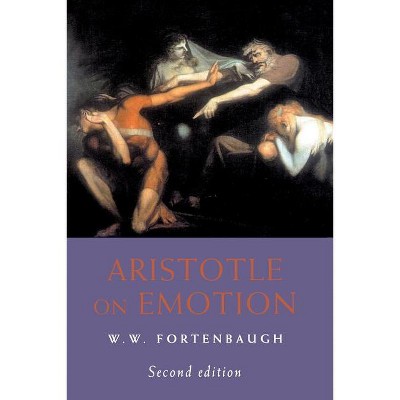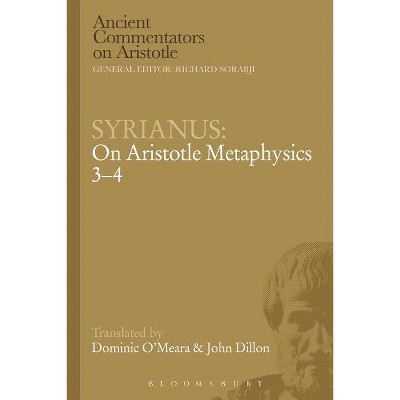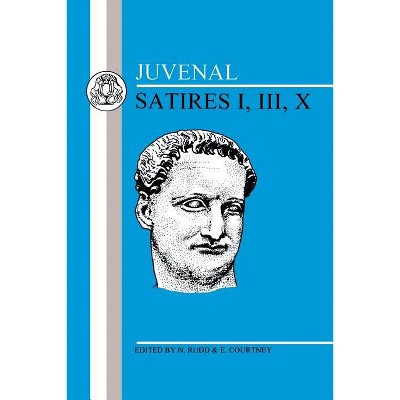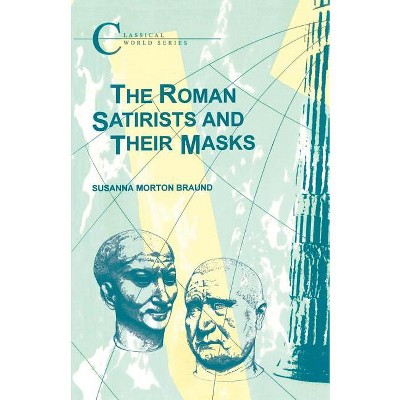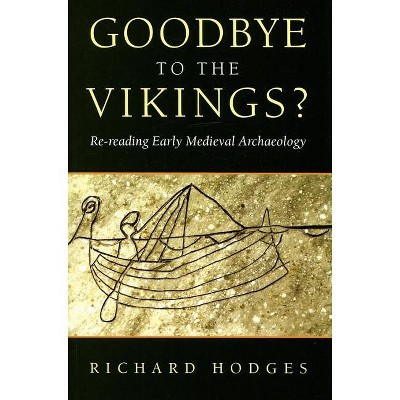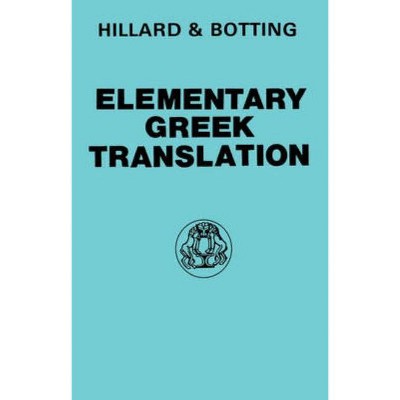Sponsored

Aristotle on Memory - 2nd Edition by Richard Sorabji (Paperback)
$29.95
In Stock
Eligible for registries and wish lists
Sponsored
About this item
Highlights
- Aristotle's treatise "De Memoria" is close to theories of memory in the British empiricist tradition.
- About the Author: Richard Sorabji is Research Professor of Philosophy at King's College London and a Fellow of Wolfson College, Oxford.
- 144 Pages
- Philosophy, Movements
Description
About the Book
Aristotle's treatise "De Memoria" is close to theories of memory in the British empiricist tradition and serves as a good introduction to the topic. This book, first published in 1972, provides a translation of the text together with extensive introduction, summaries and commentary.
Book Synopsis
Aristotle's treatise "De Memoria" is close to theories of memory in the British empiricist tradition. Because of its richness of detail it serves as a good introduction to the topic. This book, first published in 1972, provides a translation of the text which is more faithful to the original than previous ones, together with extensive introduction, summaries and commentary. It has never been superseded. For this second edition of the book, Richard Sorabji has provided a substantial new introduction, taking account of scholarly debate over the intervening thirty years, particularly on the role of mental images in the imagination.About the Author
Richard Sorabji is Research Professor of Philosophy at King's College London and a Fellow of Wolfson College, Oxford. He is the author of many books, including Necessity, Clause and Blame, Matter, Space and Motion, and Time, Creation and the Continuum, all published by Duckworth, and general editor of the Ancient Commentators on Aristotle series.
Dimensions (Overall): 8.5 Inches (H) x 5.5 Inches (W) x .33 Inches (D)
Weight: .4 Pounds
Suggested Age: 22 Years and Up
Number of Pages: 144
Genre: Philosophy
Sub-Genre: Movements
Publisher: Bloomsbury Publishing PLC
Theme: Humanism
Format: Paperback
Author: Richard Sorabji
Language: English
Street Date: April 15, 2004
TCIN: 1004352360
UPC: 9780715632390
Item Number (DPCI): 247-20-0751
Origin: Made in the USA or Imported
If the item details aren’t accurate or complete, we want to know about it.
Shipping details
Estimated ship dimensions: 0.33 inches length x 5.5 inches width x 8.5 inches height
Estimated ship weight: 0.4 pounds
We regret that this item cannot be shipped to PO Boxes.
This item cannot be shipped to the following locations: American Samoa (see also separate entry under AS), Guam (see also separate entry under GU), Northern Mariana Islands, Puerto Rico (see also separate entry under PR), United States Minor Outlying Islands, Virgin Islands, U.S., APO/FPO
Return details
This item can be returned to any Target store or Target.com.
This item must be returned within 90 days of the date it was purchased in store, shipped, delivered by a Shipt shopper, or made ready for pickup.
See the return policy for complete information.
Trending Philosophy

$13.99 - $23.05
MSRP $25.00 - $40.00
4.4 out of 5 stars with 197 ratings

$10.23
was $10.78 New lower price
4.6 out of 5 stars with 22 ratings









![Zen and the Art of Motorcycle Maintenance [50th Anniversary Edition] - by Robert M Pirsig (Paperback)](https://target.scene7.com/is/image/Target/GUEST_a091177a-e446-4862-8fd2-fbddb3522083)
